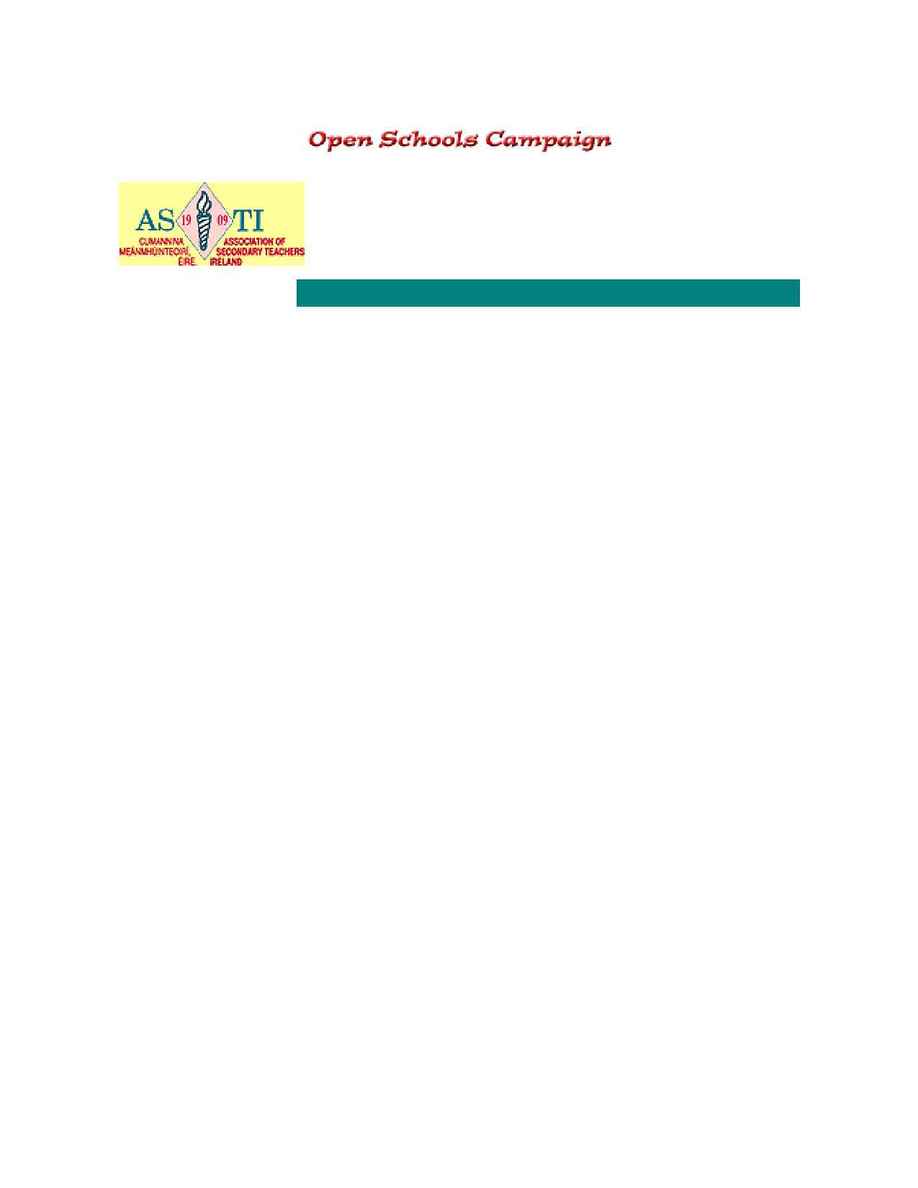
Burma Action Ireland is a voluntary group established since May 1996 to raise awareness in Ireland of the
current situation in Burma and the nature of the ruling regime.
The students of Burma started the pro-democracy movement in their country in the 1960s in conjunction with
the labour and peace movements. Right up to 1988 the students continued with their protests against the
brutal military dictatorship. In that year over 3,000 peaceful protestors were killed by a military, more than
the number killed in a similar manner in Tiananmen Square.
The present regime, the State Peace and Development Council (SPDC) views the students as a threat to their
totalitarian rule, due to their outspoken nature and their protests over the denial of fundamental rights, such
as freedom of expression. Lack of education results in lack of knowledge. The regime has deliberately under-
mined education in order to keep the people deprived of knowledge, Militarisation has been the top priority
for the SPDC, rather than providing education for the people.
The SPCDC has used every tactic to silence the students' movements and to keep them from assembling. The
Education system has deteriorated so much that it is no longer recognise by world standards. In order to en-
sure a bright future for Burma, the schools of Burma need to be re-opened and its standards raised to meet
international levels.
For more information, contact Burma Action Ireland, PO Box 6786, Dublin 14 or email: ba-i@yahoo.com
Some Facts About the Burmese Education System:
·
Up to 70% of Burmese children do not complete primary school according to the Asian Development
Bank.
·
The World Bank has stated that real public spending on primary school children is less than 30 US
cents / child.
·
Primary school teachers in Burma are paid only in $5 US per month.
·
Most second level schools in rural area have minimal resources.
·
Over 1 million illegal Burmese workers and their families are in Thailand but are outside the educa-
tion system there due to the constant threat of discovery and deportation.
·
Over 100,000 Burmese refugees are living in semi-permanent Thai border refugee camps with lim-
ited educational opportunities.
·
Burmese school teachers say that only schools where military personnel have children attending
have resources supplied and the standards of education have fallen throughout Burma.
·
Due to the political system and the poor economy only a small minority of students can pay fees and
remain in second and/or third level education. There are practically no employment opportunities for
even the small numbers of graduates from 3rd level colleges. (With the notable exception of those
from the military institutes).
·
Since 1988, when the military led government closed all universities and 3rd level colleges (except
military institutes), they have been open only 30 months in total up to the summer of 2000.
·
Some third level colleges have re-opened this summer (June 2000). In order to attend the re-
opened universities and colleges students must sign an oath of loyalty to the military regime. Re-
strictive regulations, a climate of fear and increased costs together with the relocation of campuses
mean that these establishments are not in reality `open'.
The Association of Secondary Teachers, Ireland (ASTI) is the
main second-level teachers' union in the Republic of Ireland
representing 16,000 teachers in schools attended by 80% of
all second-level students.
Burma Action Ireland
AISTIR Newsletter
40
